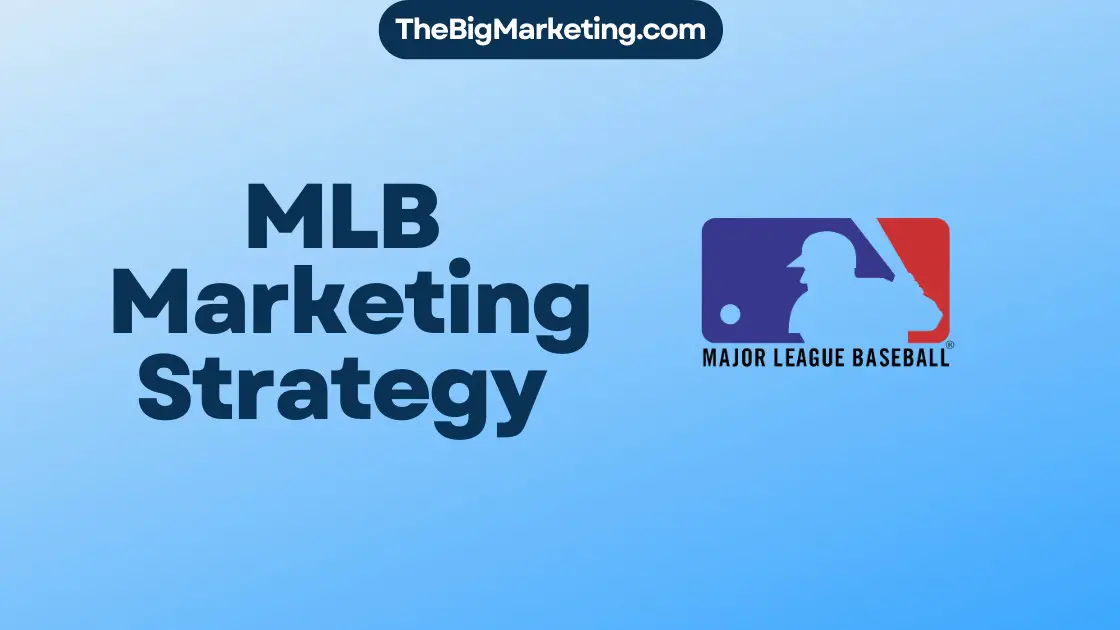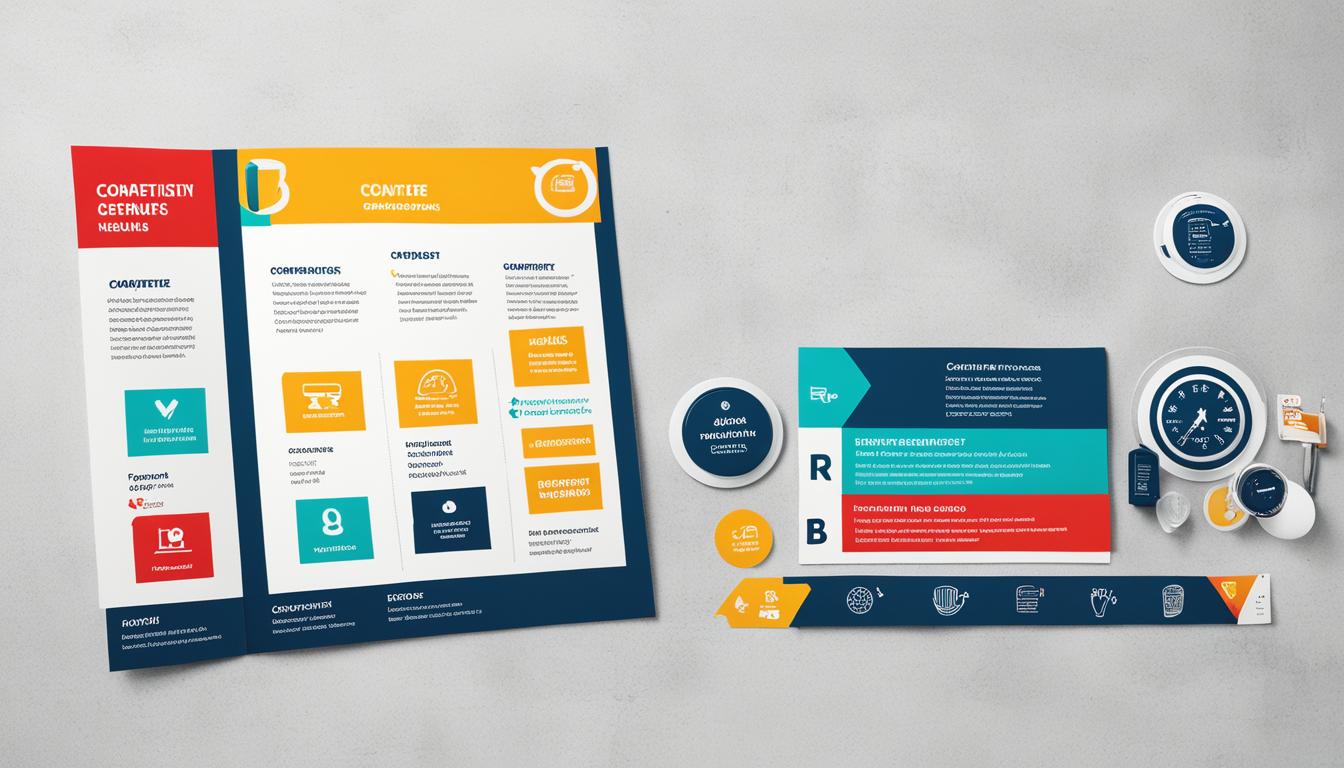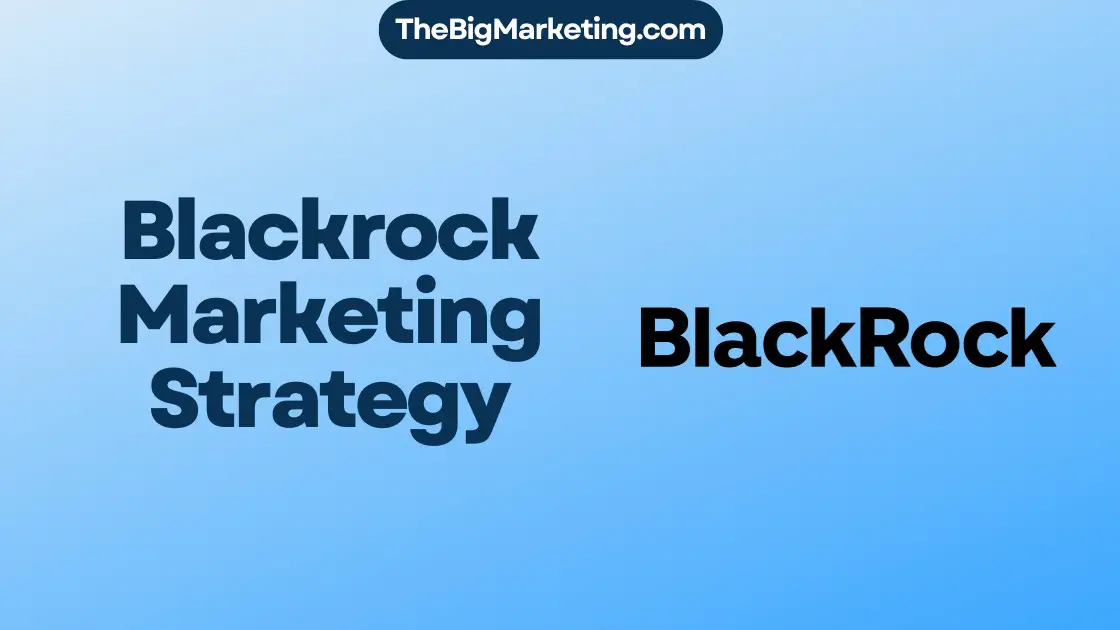Tyson Foods, the world’s second-largest processor and marketer of chicken, beef, and other foods, has emerged as a global powerhouse through its strategic marketing approach. This article delves into the intricacies of Tyson’s marketing strategy, exploring its branding approach, advertising techniques, market positioning, digital marketing plan, promotional tactics, brand development strategies, and consumer engagement methods.
Key Takeaways:
- Tyson’s marketing strategy has been instrumental in its global success as a leading food brand.
- The company employs strategic branding approaches to establish a strong market presence.
- Tyson utilizes diverse advertising techniques to effectively communicate its brand message to the target audience.
- Market positioning plays a pivotal role in shaping Tyson’s competitive advantage.
- The company’s digital marketing plan encompasses various innovative strategies to engage consumers.
Company Overview
Tyson Foods, founded in 1931, has emerged as a prominent player in the global food industry. With a rich history spanning almost a century, the company has grown to offer an extensive range of services, positioning itself as a trusted provider of protein solutions. Tyson Foods specializes in baby chick sales, feed sales, and chicken transportation services, catering to the diverse needs of its customers.
In 2019, Tyson Foods expanded its operations by acquiring the Thai and European businesses of BRF SA, further strengthening its global presence. This strategic move has allowed Tyson Foods to widen its market reach and enhance its service offerings.
Tyson’s Vision and Tagline
Tyson Foods envisions itself as the world’s first choice for protein solutions, aiming to deliver high-quality products that meet the expectations of families worldwide. Their commitment to excellence is reflected in their tagline, which emphasizes their dedication to providing what every family deserves.
Tyson Foods’ tagline perfectly encapsulates their core values and commitment to delivering superior food products for customers to enjoy.
| Company Overview | History | Services | Vision | Tagline |
|---|---|---|---|---|
| Tyson Foods | Established in 1931 | Baby chick sales, feed sales, chicken transportation | World’s first choice for protein solutions | “It’s what your family deserves” |
Target Audience
Tyson Foods understands the importance of identifying their target audience to effectively cater to their needs and preferences. Through careful customer segmentation, Tyson has gained insights into their target audience’s behavior, enabling them to create personalized marketing strategies.
Utilizing various criteria, such as age, income, gender, lifestyle, and values, Tyson has successfully divided their customer base into distinct segments. This segmentation allows Tyson to better understand their customers and collect specific information about them. By doing so, Tyson can tailor their marketing efforts to meet the unique requirements of each segment, ultimately driving customer satisfaction and loyalty.
Moreover, Tyson strategically targets segments with growth potential and commercial attractiveness. By focusing on these segments, Tyson maximizes their marketing investments, ensuring a higher return on investment and sustainable business growth.
Customer Segmentation Analysis
To further illustrate Tyson’s customer segmentation approach, here is a breakdown of their target audience based on key criteria:
| Segment | Characteristics |
|---|---|
| Young Professionals | Ages 25-35, higher income bracket, health-conscious, busy lifestyle |
| Family-Oriented | Ages 35-45, moderate to high income, prioritize quality and convenience |
| Seniors | Ages 65+, moderate income, focus on health and dietary requirements |
| Millennial Food Enthusiasts | Ages 18-34, diverse income range, seek unique culinary experiences |
By strategically positioning their products and messages, Tyson creates a positive and resonant image of their brand within the minds of their diverse target audience. Whether targeting health-conscious young professionals or food enthusiasts seeking unique flavors, Tyson understands the importance of catering to their target audience’s specific needs and desires.
Marketing Campaigns
Tyson Foods recently launched a highly successful marketing campaign called “Thank You” that showcased the company’s commitment to helping moms be heroes at mealtime. With a budget of $70 million, the campaign aimed to resonate with consumers and deliver a heartfelt message of appreciation for their trust in Tyson’s products.
The “Thank You” campaign utilized a variety of multimedia ads to engage with the target audience effectively. These ads were strategically placed on television, online platforms, and social media channels to maximize reach and impact. The use of compelling visuals and storytelling techniques ensured that the campaign’s message struck a chord with viewers and left a lasting impression.
In addition to multimedia ads, Tyson incorporated testimonials from current drivers into their marketing campaign. These testimonials showcased the experiences and stories of individuals who play a vital role in Tyson’s operations. By featuring real employees, the campaign added authenticity and relatability, establishing a sense of trust with consumers.
The “Thank You” campaign exceeded expectations, resulting in an impressive 18% increase in applications from qualified candidates. This spike in interest can be attributed to the powerful emotional appeal of the campaign and its ability to highlight the positive impact Tyson’s products have on families’ lives.
Social Media Marketing
Tyson Foods understands the power of social media in reaching and engaging their audience. They have an active presence on various platforms, utilizing the popular networks to connect with consumers and share brand updates.
Tyson leverages the professional networking platform LinkedIn for business networking, industry updates, and thought leadership. With over 235K+ followers, Tyson engages with professionals, fostering industry connections and enhancing their brand reputation.
Tyson maintains a strong presence on Facebook, engaging with their 290K+ followers. Through regular updates and interactive content, Tyson keeps their audience informed about their products, events, and initiatives.
With a growing community of 13.5K followers, Tyson uses Instagram to showcase visually appealing content, including recipes, culinary inspiration, and behind-the-scenes glimpses. Their engaging posts stimulate conversations and create brand loyalty.
Tyson joins the conversation on Twitter, connecting with their 16.6K followers through real-time updates, timely replies, and relevant hashtags. They use this platform to share news, industry insights, and establish their presence in the social media landscape.
YouTube
Tyson utilizes YouTube as a video-sharing platform to entertain, educate, and inspire their 4.48K subscribers. With a mix of recipe tutorials, behind-the-scenes footage, and customer testimonials, Tyson offers valuable video content to their audience.
| Platform | Number of Followers/Subscribers |
|---|---|
| 235K+ | |
| 290K+ | |
| 13.5K | |
| 16.6K | |
| YouTube | 4.48K |
SEO Strategies
In today’s digital landscape, effective SEO strategies are essential for businesses to improve their online visibility, attract organic traffic, and enhance their brand presence. Tyson Foods, with its commitment to innovation and continuous improvement, has implemented strong SEO strategies to drive its online success.
Tyson’s website, tysonfoods.com, showcases their impressive use of SEO techniques, resulting in a vast number of organic keywords, totaling 59,659. This extensive keyword coverage ensures that Tyson’s website ranks highly in relevant online searches, attracting targeted organic traffic.
By aligning their website content and structure with organic keywords relevant to their industry and offerings, Tyson Foods maximizes its online visibility and user engagement. This strategic approach enables Tyson to appear prominently in search engine results, positioning their brand as a trusted source for quality food products.
The Power of Organic Keywords
Organic keywords play a pivotal role in driving relevant traffic to Tyson’s website. When users search for terms related to Tyson’s products or services, the comprehensive keyword coverage ensures that Tyson’s website appears as a top-ranking search result. This high visibility increases the likelihood of attracting potential customers and driving organic traffic.
In a typical month, Tyson Foods’ website receives an impressive 235,390+ organic visitors, showcasing the success of their SEO efforts. This steady stream of organic traffic not only indicates the effectiveness of Tyson’s SEO strategies but also translates into increased brand awareness, customer engagement, and potential business opportunities.
Optimizing Content and User Experience
Through targeted keyword research and analysis, Tyson Foods has optimized their website content to align with user search intent. This ensures that users find relevant and valuable information when visiting the website, resulting in longer page visits, lower bounce rates, and increased user satisfaction.
Moreover, Tyson understands the importance of providing users with a seamless and engaging online experience. By employing user-friendly navigation, intuitive design, and responsive web development, Tyson Foods enhances user engagement and strengthens the overall user experience.
As illustrated by the statistics and user metrics, Tyson’s SEO strategies have played a crucial role in delivering significant organic traffic to their website. By consistently refining and optimizing their SEO approach, Tyson Foods continues to strengthen their online presence, attract more potential customers, and enjoy sustained growth in the digital space.
Influencer Marketing
In today’s digital landscape, influencer marketing has become an essential strategy for brands looking to expand their reach and drive brand growth. Tyson Foods, a leading food processor and marketer, has recognized the power of influencer marketing and has successfully leveraged this tactic to connect with new audiences and boost their brand presence.
Tyson has forged strategic partnerships with influencers who align with their brand values and target audience. These influencers have played a crucial role in promoting Tyson products, engaging with their followers, and spreading positive brand awareness.
One notable influencer campaign organized by Tyson resulted in a remarkable reach of over 10 million and generated more than 48,000 engagements. This impressive outcome highlights the effectiveness of influencer marketing in enhancing brand visibility, increasing consumer engagement, and ultimately driving growth for the Tyson brand.
By collaborating with influencers who have a strong online presence and a dedicated following, Tyson has been able to tap into previously untapped markets and connect with consumers who may not have been familiar with their products. These influencers have used their platforms to showcase Tyson’s offerings, creating authentic and relatable content that resonates with their audience.
Influencer marketing has proven to be a powerful tool for Tyson, enabling them to extend their brand reach, increase product visibility, and foster a deeper connection with their target market. Through their influencer campaigns, Tyson has experienced substantial brand growth and solidified their position as a leading player in the food industry.
Mobile App
Tyson currently does not have a mobile app. However, the development of a mobile app could greatly enhance customer convenience and provide valuable insights into customer behavior. By offering a mobile app, Tyson can offer a seamless and efficient way for customers to access their products and services. A mobile app would allow customers to easily browse and order Tyson’s products, track their orders, receive personalized recommendations, and stay updated with the latest promotions and news. With a mobile app, Tyson can also gather valuable data on customer preferences, shopping habits, and feedback, enabling them to further tailor their offerings to meet customer expectations.
A mobile app would offer several customer convenience benefits. Firstly, it would enable customers to conveniently access Tyson’s products and services anytime, anywhere, using their smartphones or tablets. This would eliminate the need for customers to visit physical stores or use a computer to make purchases. The app could also provide features such as saved preferences, allowing customers to quickly reorder their favorite products, and personalized recommendations based on their purchase history and preferences.
Furthermore, a mobile app would allow customers to easily track their orders in real-time, providing transparency and peace of mind. Customers could receive notifications and updates on the status of their orders, including estimated delivery times. The app could also offer customer support features, allowing customers to easily communicate with Tyson’s support team in case of any issues or inquiries.
Overall, the development of a mobile app by Tyson would enhance customer convenience, streamline the shopping experience, and provide valuable insights into customer behavior. By offering a mobile app, Tyson can further strengthen their relationship with customers and continue to provide exceptional service and convenience in the digital age.
| Benefits of a Tyson Mobile App |
|---|
| Convenient access to Tyson’s products and services |
| Seamless and efficient shopping experience |
| Personalized recommendations based on customer preferences |
| Real-time order tracking and notifications |
| Customer support features for quick assistance |
Ecommerce Strategies
Tyson understands the importance of leveraging technology to enhance the digital shopping experience for consumers. Utilizing artificial intelligence technology, Tyson optimizes the placement of their products and identifies what resonates with consumers. By employing innovative strategies and prioritizing certain products, Tyson aims to provide a seamless shopping experience while increasing sales.
Through the use of artificial intelligence technology, Tyson gathers valuable insights into consumer preferences and behavior. This technology enables them to optimize their online presence, ensuring that their products are strategically positioned to attract and engage customers.
By leveraging the power of artificial intelligence, Tyson is able to analyze consumer data, identify trends, and make informed decisions about product placement, pricing, and promotions. This data-driven approach allows Tyson to deliver personalized shopping experiences, tailored to the individual needs and preferences of their customers. By continuously refining their ecommerce strategies, Tyson aims to stay at the forefront of the ever-evolving digital landscape and provide a frictionless shopping experience for consumers.
Advantages of Tyson’s Ecommerce Strategies:
- Enhanced customer experience: Tyson’s intelligent algorithms create a personalized and seamless shopping journey for each customer, ensuring a positive experience from start to finish.
- Improved product visibility: By leveraging artificial intelligence, Tyson strategically places their products to maximize visibility and increase the chances of purchase.
- Optimized inventory management: The use of AI technology enables Tyson to efficiently manage their inventory, ensuring that popular products are always in stock.
- Efficient pricing and promotions: By analyzing consumer data, Tyson can offer competitive pricing and targeted promotions, maximizing their sales potential.
- Informed decision-making: AI-powered analytics provide Tyson with valuable insights, enabling them to make data-driven decisions and stay ahead of market trends.
By embracing artificial intelligence technology and implementing innovative ecommerce strategies, Tyson is committed to providing a digital shopping experience that exceeds customer expectations and drives growth in the ever-expanding online marketplace.
Content Marketing Strategies
As part of its overall marketing approach, Tyson employs content marketing strategies to deliver valuable information to its target audience and raise awareness of its brand. By consistently creating and distributing high-quality content, Tyson aims to educate its audience about its brand vision and offerings, establishing itself as a trusted authority in the food industry.
Through its content marketing efforts, Tyson strives to build a strong brand reputation and foster customer loyalty. By providing valuable and insightful content, Tyson enhances its audience’s understanding of its products and the values it stands for. This approach not only helps Tyson engage its target audience but also contributes to shaping a positive perception of the brand.
The Value of Content Marketing
Content marketing allows Tyson to connect with its audience on a deeper level. By consistently delivering valuable content, such as informative articles, helpful guides, and engaging videos, Tyson establishes itself as a reliable source of information for its customers. This not only increases brand trust but also encourages repeat business and referrals.
Furthermore, content marketing enables Tyson to showcase its brand vision and communicate its unique selling propositions. By carefully crafting content that highlights Tyson’s commitment to quality, sustainability, and customer satisfaction, the company reinforces its brand message and differentiates itself from competitors.
Creating Valuable Content
Tyson’s content marketing efforts are centered on creating content that is both informative and engaging. Whether it’s through detailed product guides, recipe inspiration, or behind-the-scenes videos showing the company’s commitment to quality, Tyson strives to deliver content that provides genuine value to its audience.
To ensure the success of its content marketing strategies, Tyson conducts thorough research to identify the needs and interests of its target audience. By understanding their pain points and preferences, Tyson can tailor its content to address their specific needs, establish trust, and foster long-term relationships.
Content Distribution Channels
Tyson employs various distribution channels to maximize the reach and impact of its content. These channels include its website, blog, social media platforms, and email newsletters. By utilizing these channels effectively, Tyson ensures that its valuable content reaches its target audience across multiple touchpoints.
Through its website and blog, Tyson creates a hub of valuable information where customers can explore different aspects of the brand and find answers to their questions. Social media platforms such as Facebook, Twitter, and Instagram allow Tyson to engage with its audience, share content, and build a community of passionate brand advocates.
By leveraging email marketing, Tyson can deliver personalized content directly to its customers’ inboxes, ensuring that they receive relevant and valuable information on a regular basis.
Measuring Success
To measure the success of its content marketing strategies, Tyson tracks key performance indicators such as website traffic, engagement metrics, conversion rates, and customer feedback. By analyzing these metrics, Tyson can gain insights into the effectiveness of its content, make data-driven decisions, and continuously improve its content marketing efforts.
| Benefits of Tyson’s Content Marketing Strategies | Examples |
|---|---|
| Establishing brand authority | Informative articles showcasing Tyson’s expertise |
| Fostering customer loyalty | Recipe inspiration and cooking tips that keep customers engaged |
| Increasing brand awareness | Engaging videos highlighting Tyson’s commitment to quality |
| Driving website traffic | Compelling blog posts that attract organic search traffic |
| Generating leads | Valuable gated content that captures customer information |
Sales Training and Consulting
Tyson Group specializes in providing sales training and consulting services to empower sales leaders and their teams. With their expertise and comprehensive programs, Tyson Group has helped clients achieve record-breaking sales results and drive revenue growth.
Through personalized coaching and training sessions, Tyson Group equips sales leaders with the skills and strategies needed to excel in today’s competitive market. Their experienced consultants work closely with teams to enhance their sales performance, boost productivity, and improve customer engagement.
By implementing Tyson Group’s proven methodologies, sales teams have witnessed remarkable outcomes. Clients have reported significant increases in premium suite sales, leading to higher profits and business growth. Additionally, their expert guidance has resulted in more successful business meetings, improved closing rates, and optimized revenue generation.
With a strong focus on team empowerment, Tyson Group goes beyond traditional sales training. They emphasize building a collaborative and high-performing sales culture, fostering ongoing motivation and development among team members.
By partnering with Tyson Group, sales leaders and their teams gain valuable insights, tools, and techniques to excel in the dynamic sales landscape. The personalized approach enables them to overcome challenges, adapt to market changes, and achieve long-term sales success.
Conclusion
Tyson’s marketing strategy has been a driving force behind the company’s global success. Through a combination of effective segmentation, targeting, and positioning, Tyson has carved out a leading position in the highly competitive food industry. By developing and implementing impactful marketing campaigns, leveraging social media and SEO strategies, embracing influencer marketing, and prioritizing customer engagement, Tyson has solidified its brand reputation and achieved remarkable sales growth.
One of the key success factors of Tyson’s marketing strategy is their commitment to innovation and continuous improvement. By staying ahead of industry trends and consumer preferences, Tyson consistently delivers products and services that meet customer needs. This proactive approach has not only earned them customer loyalty but has also positioned them as a pioneer in the food industry.
Furthermore, Tyson’s focus on customer engagement has played a pivotal role in their success. By leveraging digital channels, social media platforms, and valuable content, Tyson has fostered a strong connection with their target audience. This has allowed them to not only gather valuable insights but also build trust and loyalty among their customer base.
In conclusion, Tyson’s marketing strategy, supported by key elements such as segmentation, effective campaigns, social media presence, SEO practices, influencer marketing, and customer engagement, has been instrumental in driving their global success. With their commitment to innovation and delivering exceptional products and experiences, Tyson is well-positioned for continued growth and industry leadership.






